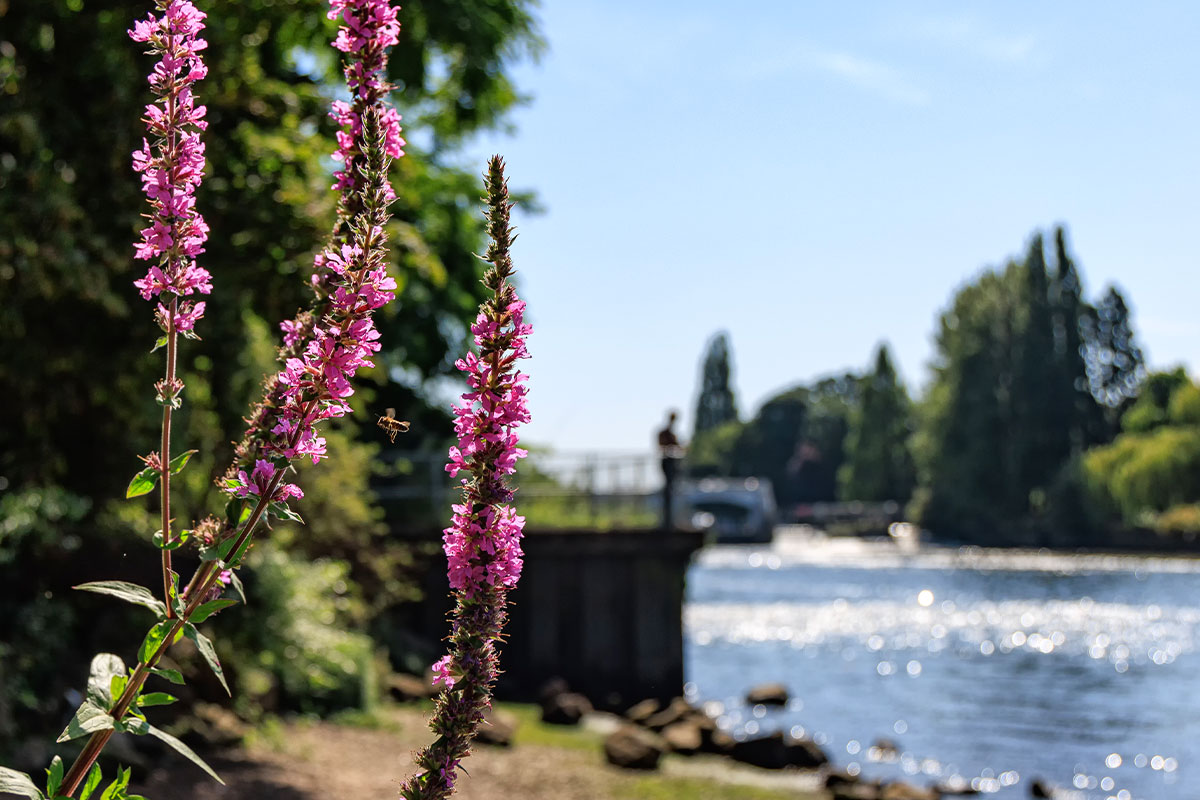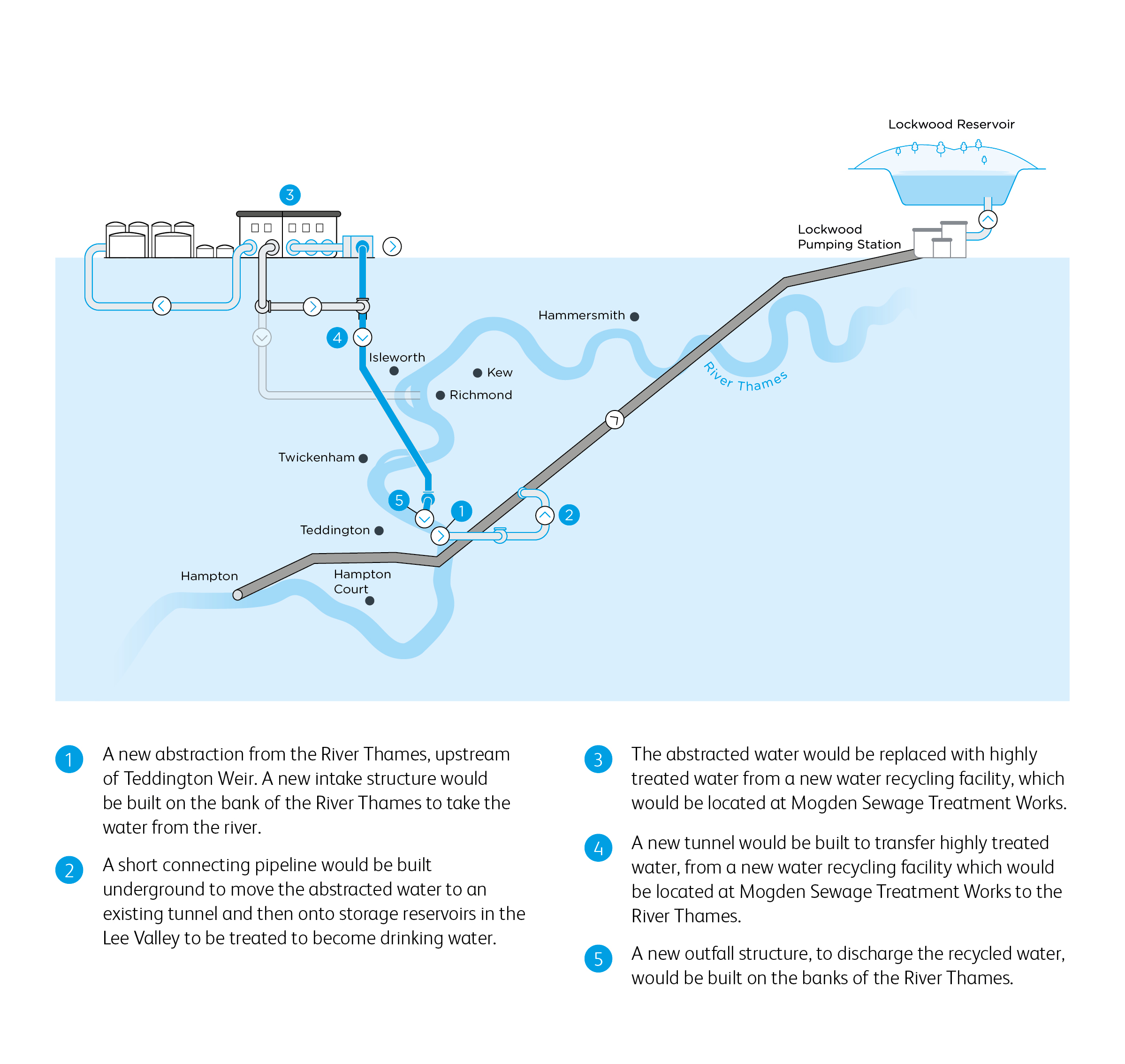Community feedback shapes Thames Water’s proposals to safeguard London’s drinking water supply

Thames Water announces changes to London drought resilience project
- Thames Water has published a series of design changes to its proposed Teddington Direct River Abstraction (TDRA) project following consultation feedback from over 2,000 people.
- The vital project will protect London’s drinking water supply during periods of drought.
- Customers, communities, and stakeholders are invited to find out more about the project at a series of information events that will take place in October 2024.
- Proposals for the project are also outlined in the company’s Water Resource Management Plan (WRMP) which recently secured government approval to publish.
- The plan sets out the company’s strategy to provide a secure and sustainable water supply for the next 50 years.
The UK’s largest water and wastewater company has announced today (17 September 2024) that it will make further changes to its proposed London drought resilience project in response to feedback from customers.
The new infrastructure project is of national significance and would safeguard the drinking water supply to millions of households and businesses across London. Thames Water forecasts a shortfall of 1 billion litres of water per day by 2050 and it expects to be supplying an additional two million customers in London by that time, up from eight million to 10 million.
To address the water shortage, Thames Water is also planning record investment in new infrastructure and upgrades to its water network, alongside a commitment to more than halve leakage by 2050, and roll out a further 1.1 million smart meters to customers in the next five years.
How the project works

How the Teddington Direct River Abstraction project will work
The Teddington Direct River Abstraction (TDRA) project would only be used during periods of drought to protect drinking water supplies.
Water abstracted from the River Thames, upstream of Teddington Weir, would be transferred along a new connecting pipeline to an existing underground tunnel. It would then join the Lee Valley reservoirs in East London, ready to become drinking water.
To replenish the river, highly treated recycled water, which has gone through an additional cleaning stage known as ‘tertiary treatment’ would then be transferred from Mogden sewage treatment works and released into the River Thames at a new discharge location upstream of Teddington Weir. This would compensate for water taken to help protect the environment and local wildlife.
Strict rules, set by the Environment Agency, would govern its operation and the project is designed to ensure there would be no untreated sewage transferred into the river.
If approved, the project could provide up to 75 million litres of water each day, sparing London’s economy from the effects of a severe drought which could cost as much as £500 million a day.
Design changes and feedback
Over 2,300 people responded to Thames Water’s non-statutory public consultation in autumn 2023. To address the public’s most pressing concerns about surface level impacts in Hounslow, Richmond and Kingston, the company announced in July 2024 that it would change the proposed construction method for its new recycled water pipeline.
The move from pipejacking to tunnel boring significantly reduces visual impacts, as four ventilation shafts and construction compounds are removed from the project design. This also reduces the number of traffic movements that would have been associated with the original shaft and associated compound sites.
As it continues to act on feedback, Thames Water has today set out a solution that would remove the need to continually discharge treated water upstream of Teddington Weir. It would instead discharge the maintenance flow, which keeps the water recycling process in good working order, at Isleworth, using existing infrastructure. As a result of this change, treated water would only be discharged upstream of Teddington Weir when the TDRA project is in operation – on average, once every two years.

Community information events
Thames Water will host four community information events to share consultation feedback and revised proposals. The events will be held on the following dates, and those interested in attending are encouraged to register their attendance in advance:
- Tuesday 1 October 2024, 2pm – 7pm, Isleworth Public Hall
- Saturday 5 October 2024, 10am – 4pm, St Richards Church, Ham
- Wednesday 9 October 2024, 2pm – 8pm, Doubletree by Hilton, Kingston on Thames
- Monday 14 October 2024, 2pm– 8pm, York House, Twickenham
For more information about the TDRA project proposals and design changes, click here or visit Teddington Direct River Abstraction (TDRA) - Thames Water Resources Management Plan. Consultation feedback documents and plans will be uploaded from midday onwards on Tuesday, 17 September.
To register for the community information events, click here or visit the events page.
